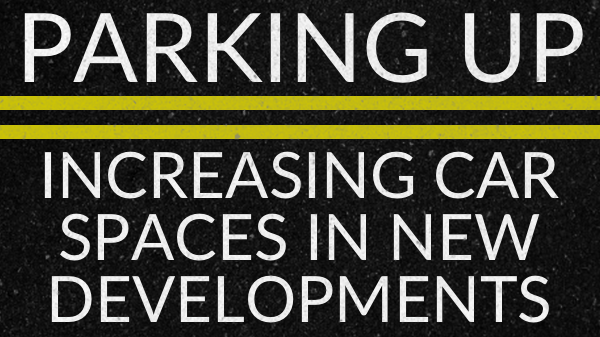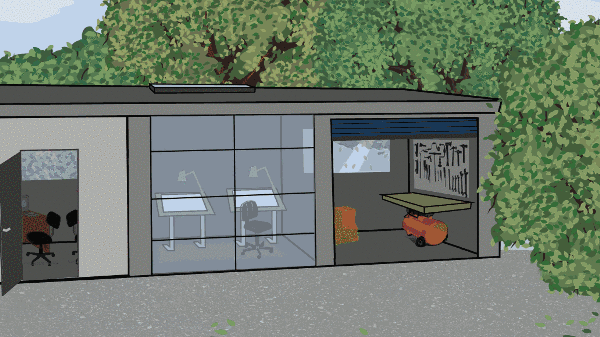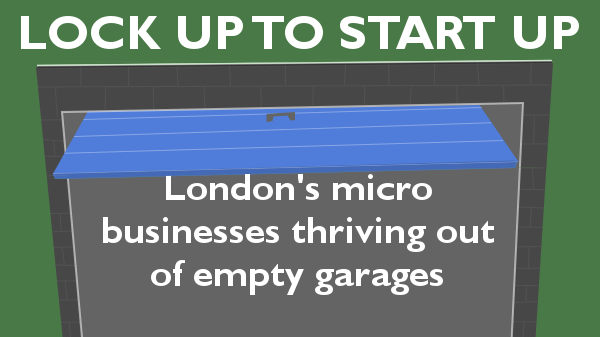Scrap outer London parking limits as investigation shows lack of spaces

Three in ten new homes approved in Outer London since 2011 don’t have a parking space, according to new figures.¹
An investigation by GLA Conservative Steve O’Connell reveals that new suburban developments in the Capital have just 0.7 off-street parking spaces per home on average – Sutton has as little as 0.37 while Bromley has the most with 1.26 per home.¹
Scrapping parking limits from the Mayor’s planning document for London², and giving boroughs the power to decide their own levels, would help outer London areas meet local parking demands where needed.
New ‘disused site’ action plan could deliver 10k London homes in 10 years

· New research identifies 4,552 disused sites and spaces in just 13 London boroughs
· Self-building pilot on 100 sites will help young professionals and first time buyers
4,552 redundant spaces and sites in blocks and estates – such as old laundries, garages and store sheds – have been identified across just 13 boroughs of London.¹
A new report, “Gap In The Market”, sets out a large scale ‘disused site’ action plan – across all housing estates in every borough – which could deliver 10k homes in 10 years.²
Local pubs included for the first time in Mayor’s draft London plan

Steve O’Connell, author of report urging protection for pubs, calls for market testing of empty pub sites
The “important role” of London’s pubs has been recognised for the first time in the Mayor’s new draft London Plan, and the Capital’s boroughs are encouraged to “maintain, manage and enhance” them. The plan also supports councils in preventing the loss of pubs, if it can be demonstrated that they are “community assets”.
These new guidelines follow the publication of ‘Keeping Local’, a recent report which urged improved protection for pubs when it comes to demolishing or changing the use of them.
Steve O'Connell: Convert Empty Garages Into Affordable Studios and Workshops for Start-Ups

Business is booming in the UK. There are an estimated 4.9million private sector businesses in the UK, employing around 24.3million people, with a combined turnover of £3.3billion. Three quarters of these businesses are non-employing, or sole traders.
However, although thriving enterprise is a good news story for our economy, start-ups and micro businesses are threatened by continuously rising commercial property prices. Small businesses in London are bearing a huge 'cost burden' according to the Federation of Small Businesses and London First. Their Small Business Cities Index has ranked London the second highest compared with 23 other global cities when it comes to work space rentals, taxes, wages, and redundancies.
It's not just offices, micro businesses working in light industry also face high rents. An online search of available commercial studios and workshops for rent in a variety of areas across London brought up a price range of £560 – £1,630 per month, very high prices for a start-up cycle mechanic or a growing architect's firm.
3K empty garages identified in London: Convert them into affordable studios and workshops for start-ups

New report urges initial London pilot of 300 garages, with eventual UK-wide roll out
Converting some of London’s 3,275 identified empty garages into basic studios, workshops and offices could provide the Capital’s start-ups with affordable space and opportunity to grow.
A new report, ‘From Lock Up to Start Up’, urges housing associations to transform disused garages into commercial spaces and rent them out at competitive prices to micro-businesses such as cycle mechanics, carpenters and product designers.
Lock up to start up

Converting some of London’s 3,275 identified empty garages into basic studios, workshops and offices could provide the Capital’s start-ups with affordable space and opportunity to grow.
A new report, ‘From Lock Up to Start Up’, urges housing associations to transform disused garages into commercial spaces and rent them out at competitive prices to micro-businesses such as cycle mechanics, carpenters and product designers.
Boroughs must get real about affordable housing to get London’s 180K stalled developments moving

Overly ambitious affordable housing targets stifles development of new homes
4th July 2013: Steve O’Connell will today call for London boroughs to take a flexible approach to affordable housing requirements where necessary, in order to provide enough new homes for London’s growing population.
London’s population is forecast to grow to nine million by 2020. However, according to the latest GLA figures, there are 180,000 homes waiting in stalled developments in London. Steve O’Connell will point to the turnaround of stalled developments such as Bradstowe House in Harrow and the IYLO Building in Croydon.
New planning rules could cost councils hundreds of thousands of pounds

Reforms to planning rules which make it easier for small-scale residential extensions could cost councils hundreds of thousands of pounds. London Assembly Member Steve O’Connell welcomes the new arrangements, which cuts red tape and helps families improve their homes, but warns tax payers should not foot the bill.
London Assembly member Steve O’Connell said: “Councils should be able to charge a fee to the applicant to cover their costs, especially if neighbours object and further work is needed by planning departments, otherwise these costs will fall on the general council tax payer. For example, even if the initial application is free but they should at least be able to charge if an impact assessment and decision is required. Ultimately, we must protect the tax payer from any further expense.”
- More than 5,000 ppl signed the petition calling fr changes to the current CR2 proposals @KemiBadenoch @WimbledonNews https://t.co/JraHnbumBd
- .@KemiBadenoch receives a petition from @WimbledonNews and local residents opposing Crossrail 2 proposals https://t.co/NxaZBxwhrI
- .@SteveO_Connell says TfL's financial commitment 'is a sign that this plan is being taken seriously' https://t.co/EQf2Sfzlmb

 Posted by GLA Conservatives in News
Posted by GLA Conservatives in News